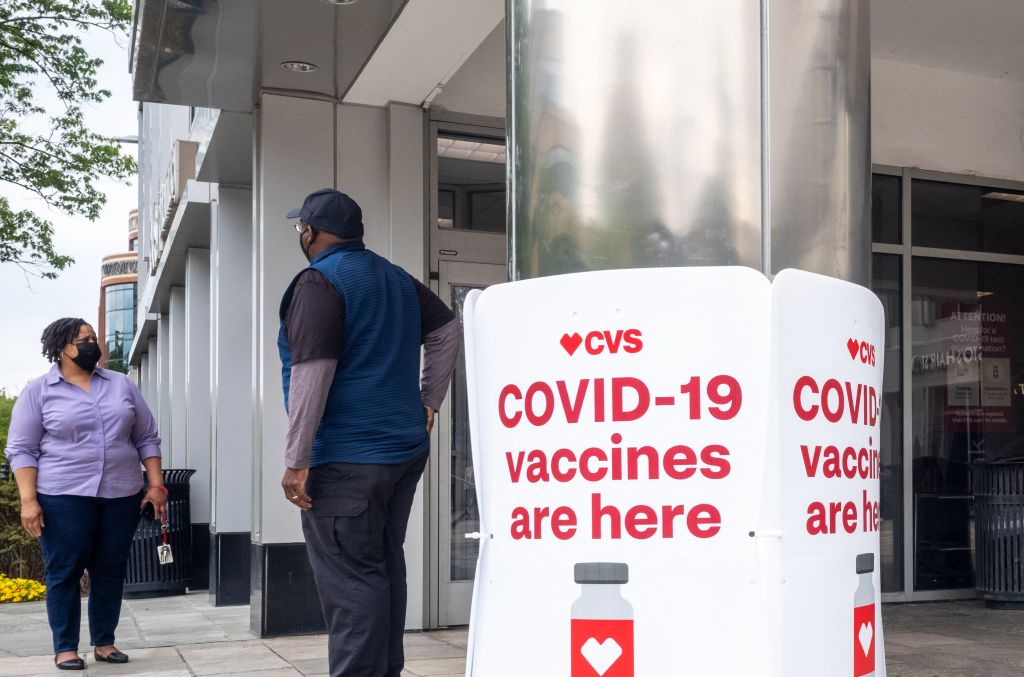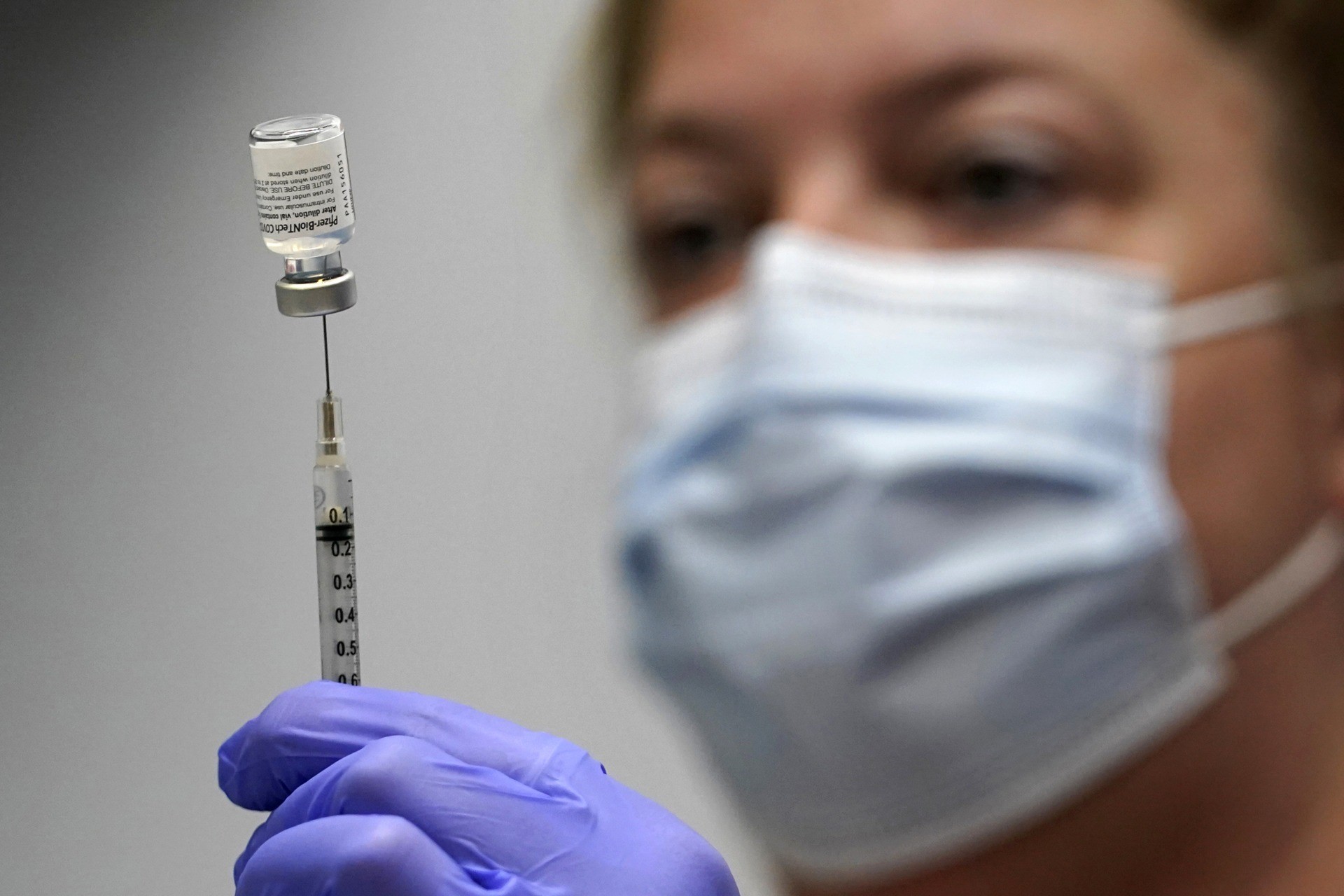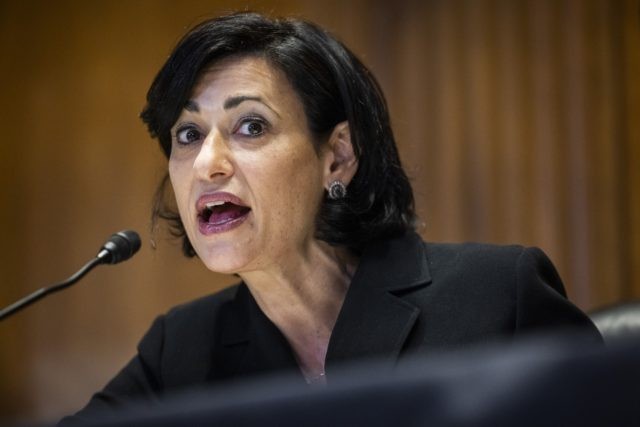Rochelle Walensky, director of the U.S. Centers for Disease Control and Prevention (CDC), bucked the decision of her agency’s own advisory panel and is now recommending vaccine booster shots for frontline workers.
On Thursday, the CDC’s Advisory Committee on Immunization Practices (ACIP) recommended coronavirus booster shots for older adults and at-risk individuals. However, the federal health agency did not include frontline workers, prompting Walensky to override her own advisory committee.
In a statement released early Friday morning, the CDC formally announced that Walensky “endorsed the CDC Advisory Committee on Immunization Practices’ (ACIP) recommendation for a booster shot of the Pfizer-BioNTech COVID-19 vaccine in certain populations and also recommended a booster dose for those in high risk occupational and institutional settings.”
“This updated interim guidance from CDC allows for millions of Americans who are at highest risk for COVID-19 to receive a Pfizer-BioNTech COVID-19 booster shot to help increase their protection,” the CDC continued, outlining the new recommendations, which includes those 65 and older.

Signs offering COVID-19 vaccinations are seen outside of a CVS pharmacy in Washington, DC on May 7, 2021. – Pfizer and BioNTech said Friday they were launching an application requesting full US regulatory approval for their game-changing Covid-19 vaccine for individuals 16 years and older. (Photo by MANDEL NGAN / AFP) (Photo by MANDEL NGAN/AFP via Getty Images)
Additionally, the CDC specifically says those 50-64 with underlying medical conditions “should” receive a booster shot, while those 18-49 with underlying medical conditions “may” receive the shot.
Because of Walensky’s decision to circumvent the advisory panel, the guidance now states that people 18-64 years “who are at increased risk for COVID-19 exposure and transmission because of occupational or institutional setting may receive a booster shot of Pfizer-BioNTech’s COVID-19 vaccine at least 6 months after their Pfizer-BioNTech primary series, based on their individual benefits and risks.”
Walensky defended her decision, describing her job as one which requires her to “recognize where our actions can have the greatest impact.”
“At CDC, we are tasked with analyzing complex, often imperfect data to make concrete recommendations that optimize health. In a pandemic, even with uncertainty, we must take actions that we anticipate will do the greatest good,” she said:
I believe we can best serve the nation’s public health needs by providing booster doses for the elderly, those in long-term care facilities, people with underlying medical conditions, and for adults at high risk of disease from occupational and institutional exposures to COVID-19. This aligns with the FDA’s booster authorization and makes these groups eligible for a booster shot. Today, ACIP only reviewed data for the Pfizer-BioNTech vaccine. We will address, with the same sense of urgency, recommendations for the Moderna and J&J vaccines as soon as those data are available.
“While today’s action was an initial step related to booster shots, it will not distract from our most important focus of primary vaccination in the United States and around the world,” she said, thanking the ACIP for their “thoughtful discussion and scientific deliberation on the current data which informed my recommendation.”

In this March 2, 2021, file photo, Hollie Maloney, a pharmacy technician, loads a syringe with Pfizer’s COVID-19 vaccine at the Portland Expo in Portland, Maine. The Biden administration’s embattled plan to dispense COVID-19 booster shots to most Americans faced its first key hurdle Friday, Sept. 17, as a government advisory panel met to decide whether to recommend extra doses of the Pfizer vaccine. (AP Photo/Robert F. Bukaty, File)
According to the New York Times, Walensky’s decision to override her agency’s panel “came as a surprise to at least some of her staff members”:
The C.D.C. director’s endorsement of the advisory committee’s recommendations is typically just a formality. Hours before her statement, agency insiders predicted she would stick with the usual protocol because doing otherwise would undermine the process and upset the advisers as well as her own staff.
But experts outside the C.D.C. said Dr. Walensky may have had no choice but to align herself with the F.D.A.’s decision. “There’s a complexity here, because Dr. Walensky was part of the White House announcement” on boosters, noted Dr. Ashish Jha, dean of the Brown University School of Public Health.

COMMENTS
Please let us know if you're having issues with commenting.